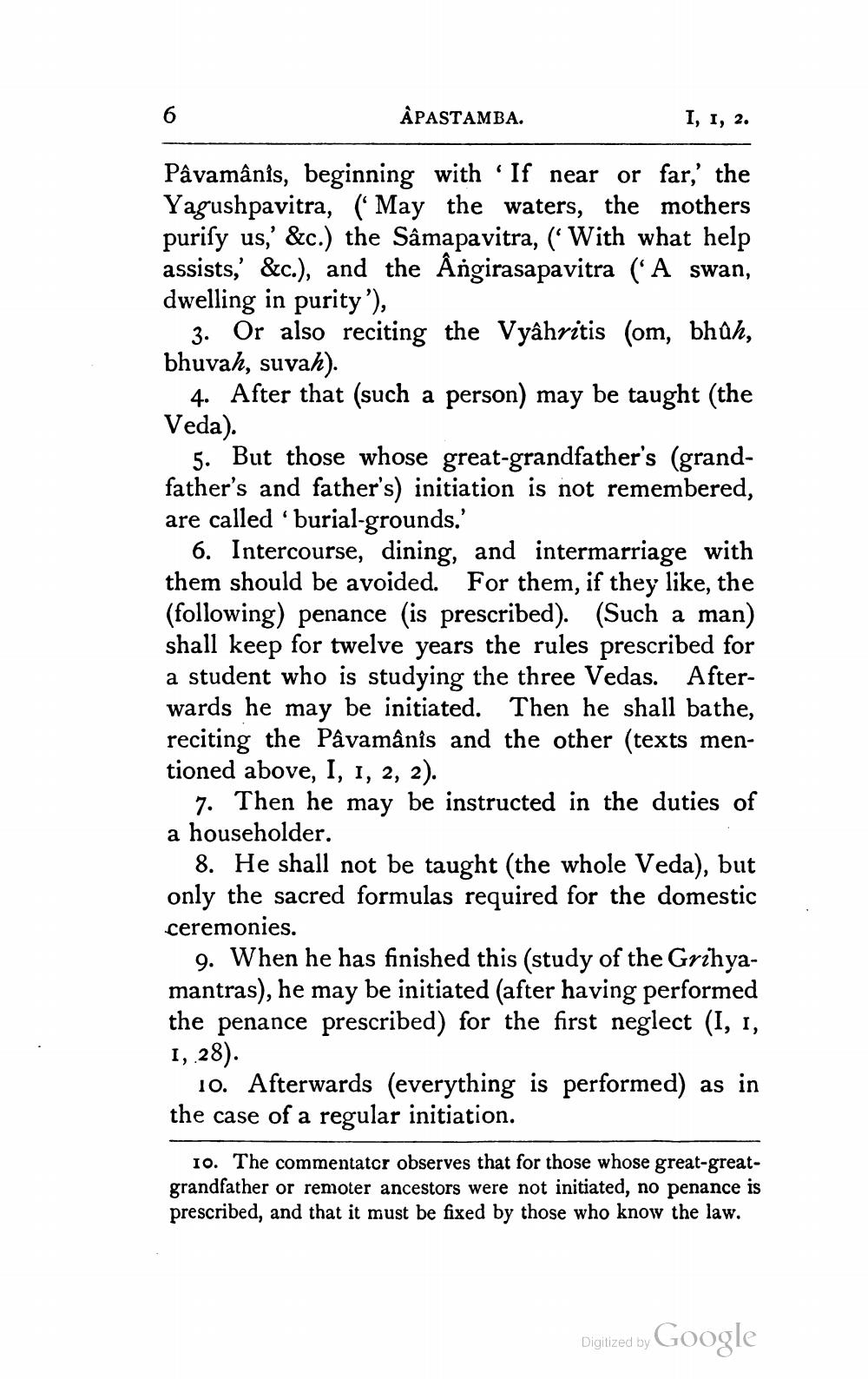________________
ÅPASTAMBA.
I, I, 2.
Pâvamânis, beginning with 'If near or far, the Yagushpavitra, (May the waters, the mothers purisy us,' &c.) the Sâmapavitra, ( With what help assists,' &c.), and the Ångirasapavitra (A swan, dwelling in purity'),
3. Or also reciting the Vyâhritis (om, bhūh, bhuvah, suvah).
4. After that (such a person) may be taught (the Veda).
5. But those whose great-grandfather's (grandfather's and father's) initiation is not remembered, are called 'burial-grounds.'
6. Intercourse, dining, and intermarriage with them should be avoided. For them, if they like, the (following) penance (is prescribed). (Such a man) shall keep for twelve years the rules prescribed for a student who is studying the three Vedas. Afterwards he may be initiated. Then he shall bathe, reciting the Pâvamânts and the other (texts mentioned above, I, 1, 2, 2).
7. Then he may be instructed in the duties of a householder.
8. He shall not be taught (the whole Veda), but only the sacred formulas required for the domestic ceremonies.
9. When he has finished this (study of the Grihyamantras), he may be initiated (after having performed the penance prescribed) for the first neglect (I, 1, 1, 28).
10. Afterwards (everything is performed) as in the case of a regular initiation.
IO. The commentator observes that for those whose great-greatgrandfather or remoter ancestors were not initiated, no penance is prescribed, and that it must be fixed by those who know the law.
Digitized by Google




